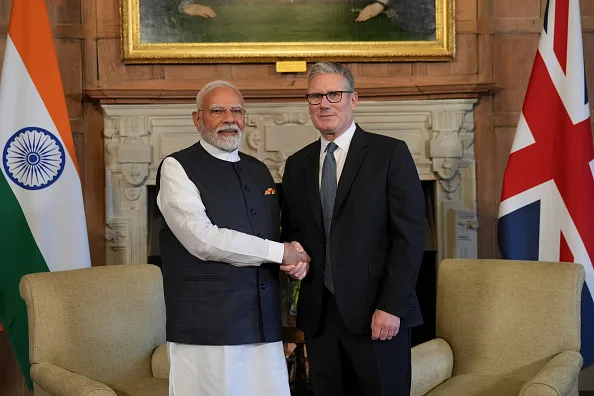London, July 24: In a major boost to bilateral ties, India and the United Kingdom on Thursday signed the Comprehensive Economic and Trade Agreement (CETA), marking a historic milestone in economic cooperation between the two nations.
The wide-ranging free trade deal was formalized during Prime Minister Narendra Modi’s two-day official visit to the UK and is seen as the most significant trade pact for both countries in recent years. For the UK, it is the largest agreement signed since its exit from the European Union.
Addressing a joint press conference with UK Prime Minister Keir Starmer, PM Modi described the pact as a “blueprint for shared prosperity,” adding, “Today marks a historic day in our bilateral relationship. This agreement not only paves the way for economic partnership but brings tangible benefits to youth, farmers, fishermen, and MSMEs.”
The deal promises improved market access for key Indian sectors, including textiles, footwear, gems and jewellery, seafood, engineering goods, agriculture, and processed foods.
Prime Minister Starmer echoed the sentiment, calling the CETA “the biggest and most significant trade deal the UK has made since leaving the EU.” He emphasized its wide-reaching benefits, noting that it would boost wages, create jobs, cut tariffs, and lower the cost of Indian imports such as clothing, food, and footwear.
“It will deliver benefits for the long term — adding £4.8 billion to the UK economy and £2.2 billion to wages annually,” Starmer stated, citing gains for sectors such as manufacturing, Scotch whisky, and financial services.
In a post on X (formerly Twitter), Starmer hailed the agreement as a “landmark deal” that would unlock new opportunities for businesses and put more money in the hands of working people.

